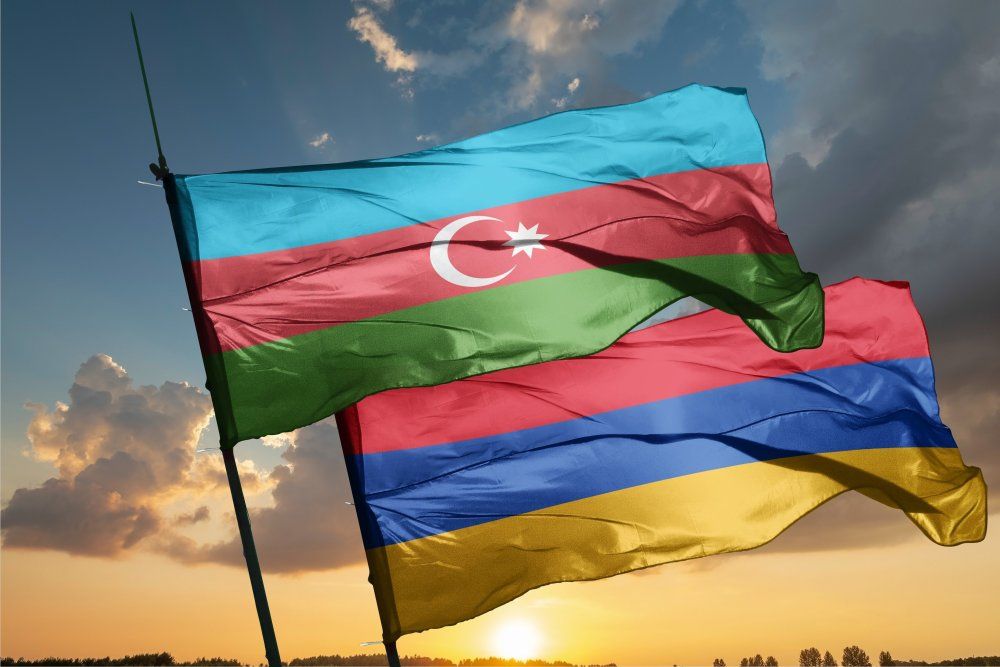
The heritage and culture of faith of different nations and nationalities have always been important for Azerbaijan, and despite the rich history of mankind in hostility and discrimination towards different nationalities, it is important to hold on to what has been laid down from the beginning, that we are all from one.
The quality of Azerbaijan and its people towards others, in its respect and kindness towards every nationality, faith confession and cultural values, in its approach and responsiveness to the request that is deeply rooted in the energy field of Azerbaijan is recognised all over the world.
Azerbaijan’s priority was to prove to the world not only in words but also in deeds, in response to the huge propaganda from neighbouring Armenia towards Azerbaijan, that tolerance is a specific quality of the Azerbaijani people.
The priority directions of the Azerbaijani government’s policy towards religion and culture of values are directly related to tolerance, which has been formed over the millennium in preserving, developing and informing the world about the traditions of tolerance inherent in the Azerbaijani people.
The attitude of the Azerbaijani state to the principles of tolerance is clearly manifested both in its attitude to representatives of different religions, restoration of religious and historical monuments, organisation of international conferences on these issues, and in the very essence of the national legislation.
The majority of the population of Azerbaijan are Muslims – almost 96 per cent, Christians -4 per cent, and representatives of other religions, Jews and Baha’is. Almost all currents of Christianity are represented in Azerbaijan.
Thus, there are Christian members of the Orthodox, Catholic, Lutheran and Protestant churches, as well as members of the historic Albanian Church living in Azerbaijan. Most of the country’s Christian population lives in the cities of Baku, Sumgayit, and Ganja, as well as in the districts of Gakh (Georgian Orthodox), Ismailli, Gadabak, Gobustan (Molokans), Gabala and Oguz (Albani Udins in the Nidj settlement of Gabala district and in the town of Oguz). Most Catholics and Lutherans live in Baku city.
Azerbaijan is an excellent example of interreligious and intercultural peaceful co-existence, said Rabbi Mark Schneier, chairman of the American Foundation for Ethnic Understanding. Rabbi Schneier, who took part in the 21st meeting of the Secretariat of the Congress of Leaders of World and Traditional Religions in Astana, expressed his admiration for the country’s commitment to interreligious dialogue, calling it a “second home” for him.
Azerbaijan is a great example of interreligious and intercultural peaceful coexistence.
“We have developed a special relationship with Azerbaijan. I believe that Azerbaijan is a great example of interreligious and intercultural cooperation and peaceful co-existence in the Muslim world. I have had the privilege of participating in various interreligious dialogue forums hosted by Azerbaijan for many years and look forward to visiting Baku again. I continue to support Azerbaijan and express my solidarity with your country and its leadership.
Baku is like a second home for me and I look forward to returning there,” Rabbi Mark Schneier said.
With the end of the conflict between Armenia and Azerbaijan, a lasting peace is high on the agenda in the Caucasus, and Azerbaijan is keen to sign a peace treaty with Armenia.
The Centre for Social Research (CSR) conducted a survey to find out the public’s attitude towards this issue, taking into account the positive dynamics towards a peace agreement between Azerbaijan and Armenia.
The question “Do you support the signing of a peace treaty between Azerbaijan and Armenia?” was addressed to the respondents. Judging by the answers to the question, the society expressed high support for the signing of the peace agreement. Thus, the absolute majority of survey participants – 80.9% – supported the signing of the peace agreement between Azerbaijan and Armenia.
18.3% of respondents took the opposite position and did not support the signing of a peace agreement. 0.8% found it difficult to express their opinion on this issue. According to the analysis of results from a gender perspective, 85.1% of men and 76.7% of women supported the signing of the peace agreement between Azerbaijan and Armenia.
The fieldwork (data collection) of the study was conducted from 5 to 9 October 2023. The surveys were conducted in the form of telephone interviews and 385 respondents over the age of 18 participated.
The study covered 12 economic regions, including Baku, Absheron-Khizi, Mountainous Shirvan, Ganja-Dashkasan, Gazakh-Tovuz, Lankaran-Astara, Guba-Khachmaz, Shaki-Zagatala, Garabagh, Central Aran, Mil-Mugan, Shirvan-Salyan. The sampling frame was determined in proportion to the population size while maintaining the gender equality of respondents. Taking into account the number of respondents covered by the survey, the margin of error of the results is 5 per cent with a confidence interval of 95 per cent.
Neighbours have a lot to learn from Azerbaijan on the way to finding calm and peace, and at the moment it is a very important feature in writing history, where it is possible to put an end to the suffering and hatred that lasted for 200 years. Everything is teaching us.
 Oval Useful news from Azerbaijan and Caucasus
Oval Useful news from Azerbaijan and Caucasus


